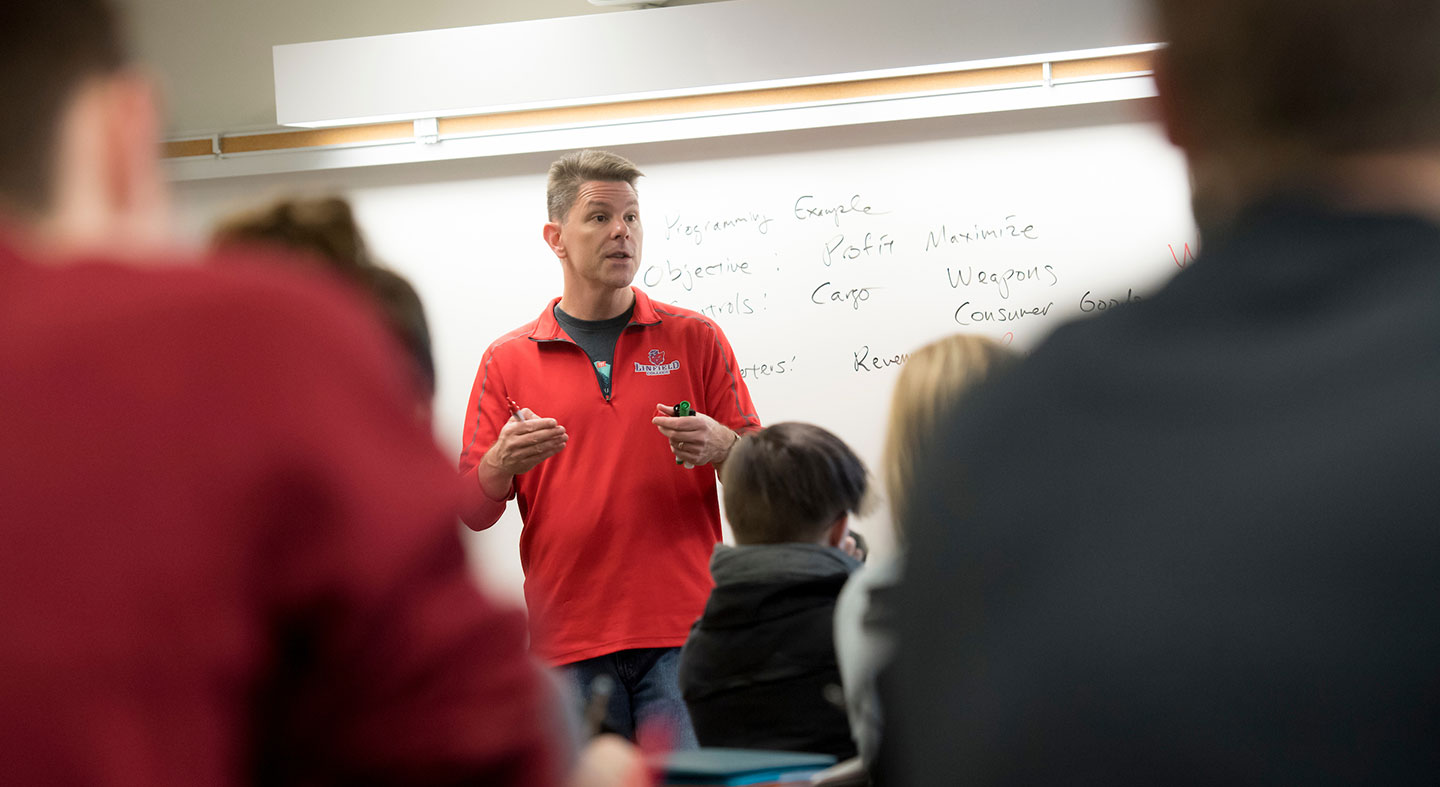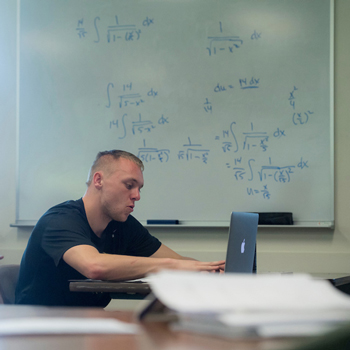
Sports Economics



Major or Minor in
Economics, or the study of how society and individuals allocate scarce resources, is central to the process of all decision-making. As a Linfield sports economics major, you will build on a foundation of microeconomic and macroeconomic principles to study real-world topics like the business of sports and the changing methodologies of economic thought.
As a sports economics major at Linfield
Economic analysis of professional and amateur sports, industry market structures and labor markets, including the role of discrimination. (ECON 210)
Economics of Sports
Economic analysis of professional and amateur sports, industry market structures and labor markets, including the role of discrimination. (ECON 210)
Examine how individuals make decisions in situations like gambling, planning when to study and donating to charity. (ECON 372)
Behavioral Economics
Examine how individuals make decisions in situations like gambling, planning when to study and donating to charity. (ECON 372)
Economic analysis of specific sports and events, product and resource markets, and the impact of institutional structure on economic behavior and outcomes of sporting events. (ECON 323)
Topics in Sports Economics
Economic analysis of specific sports and events, product and resource markets, and the impact of institutional structure on economic behavior and outcomes of sporting events. (ECON 323)
Studying sports economics at Linfield

Display a command of existing economic knowledge.

Utilize economic knowledge to explain economic issues.

Create new economic knowledge.
Have questions about studying economics at Linfield? Reach out! We'd love to connect with you.
